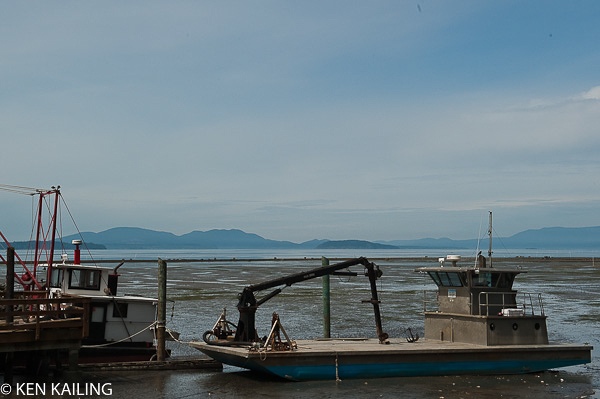GoodFood World is an on-line magazine published by – and for – food and farming advocates. (Read our mission statement and see who we are as the writers at our site.)
Gail and I, as the founders of our publication and interest base, feel strongly about the future of food. Our real food security within the region in which we live; defined loosely as the Northwest and delineated by the ecology of the food we are addressing. For example, the local food region of the Pacific salmon includes all of the salmon’s natural habitat extending into Idaho and California.
We believe the food security in our home, or place-based region, is dependent on “loaves and fishes.” Biblical, perhaps, but we think the metaphor is well applied. The food best able to support the basic calorie demand of our population – and our best bet in the face of climate change – is potentially “fish” and “grain.” As a result, although we address many subjects relevant to good food in our magazine, we direct a larger portion of our reporting to first grain and fish, then to produce and dairy products, and finally meat.

In this coverage of our food resources, we believe restoration of our natural ecosystems is paramount. We don’t discount the value of modern science and technical innovation to assist with the rebuilding of a sustainable, health-providing food system, but we do not support technology as an end in itself. Neither do we believe that technology can replace the functions of the natural environment. Rather, we place the intrinsic value of food and the preservation of the natural environment above profit as our primary motivator.
In light of our fundamental principles, the following article is typical of our bias in GoodFood World and the kind of issues we have chosen to address. We’ve become more vocal about our objectives as the confusion about food (and edible food-like substances) increases in our society as a whole. We do not believe mechanics alone will solve any of the problems we a facing with a changing climate and certainly not without major ecological restoration of our natural ecosystems. No restoration is more important than that of our natural fishery.
Even in a short time – just the last few years – the shellfish industry in Washington State has deteriorated because of bad management and pollution. We can’t afford to let this gross negligence continue. Read Puget Sound Shellfish at Risk, learn more, and tell us what you think.
